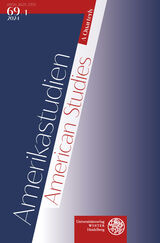Autor: Miriam Strube
- «
- 1
- »
Die Suche erzielte 3 Treffer.
“The bread of life is better than any soufflé” Beitrag open-access
Wallace Stevens’s Poetics and the Extraordinary Ordinary
Introduction: Back to the Future, or: Why Pragmatism, Why Now? Beitrag open-access
- «
- 1
- »
